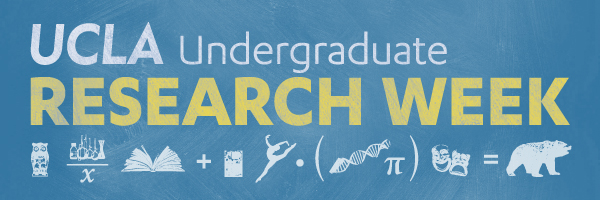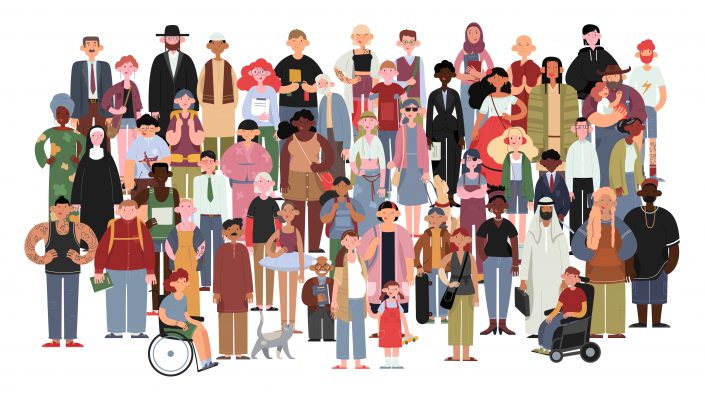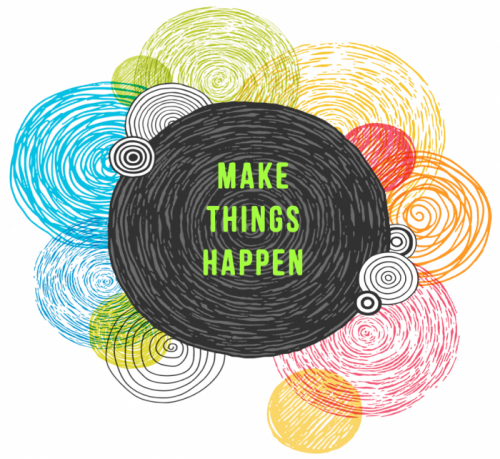Resources
With so many incredible resources available at UCLA, it can be hard to know where to start. That’s why we’ve compiled key tools and opportunities to help you navigate academic success, connect with campus support, and make the most of your Honors experience. Whether you’re looking for academic guidance, research opportunities, or ways to get involved, these resources are here to support you every step of the way. Take advantage of all that UCLA has to offer and set yourself up for success!
Use the tabs below to explore tools related to Honors credit, academic planning, campus support, and more.
Whether you’re in College Honors or College Scholars, this page will help you track your progress, explore course options, and understand the requirements to complete the program. Use the tools below to make the most of your Honors experience.
Master List of Honors Courses
Search for approved honors courses offered across departments.
Check Your Honors Progress
Track completed and pending honors coursework in your Honors Progress Page (MyUCLA – Academics – Honors)
Petition for Honors Credit
Request credit for internships, research, or independent work.
Honors Collegium
Honors Collegium seminars are unique, interdisciplinary courses designed specifically for Honors students. These small, discussion-based classes (typically 15–20 students) focus on critical thinking, creativity, and communication — offering students a chance to deeply engage with faculty and their peers.
Key Features:
Interdisciplinary topics across humanities, social sciences, and STEM
Seminar-style instruction with a focus on discussion and interaction
Fulfill the Honors Collegium requirement
Eligibility:
Open to students in College Honors or College Scholars programs
Courses are listed each quarter via the Honors Master List
Need an overview?
Watch our short explainer video: What is the Honors Collegium?
Alternative Path:
You may also fulfill the Honors Collegium requirement through a 199 Independent Study course, if the research project meets specific criteria and is pre-approved by Honors.
View the Honors Collegium via Independent Study Guidelines (PDF)
Master List Courses
The Honors Master List is a quarterly-updated resource that identifies UCLA courses offered through departments that count for Honors credit.
These are typically:
Upper and lower division seminar courses across major departments
Courses emphasizing critical thinking, writing, or faculty interaction
Research-based or project-intensive classes
Use the Master List to:
Plan your schedule each quarter
Discover new Honors course options across disciplines
Confirm which courses count toward Honors credit
View the current Honors Master List
Watch a video overview of how to use the Master List
Honors Contracts
Honors Contracts allow you to deepen your learning in a regular UCLA course by developing an individualized project in collaboration with your instructor.
These are one-unit adjuncts:
89HC for lower-division courses
189HC for upper-division courses
Students must:
Propose a meaningful enrichment activity or project
Obtain instructor approval and signature
Submit the contract by Week 3 of the quarter
Examples of contract work:
Research papers
Additional readings and written reflections
Presentations or creative projects
Download the Honors Contract pdf for more details
Watch a video explainer on Honors Contracts
Honors Contracts are a great way to turn any eligible class into an opportunity for Honors credit and deeper engagement.
Honors Seminars
Honors Seminars are small, one-unit discussion-based courses designed to enhance your learning experience in a larger lecture course. These seminars allow you to explore additional topics in a small group setting with a faculty member.
There are two types:
89: Lower-division seminars
189: Upper-division seminars
Key Features:
Must be taken concurrently with the primary lecture course
Offer an opportunity for deeper discussion, extended readings, and faculty interaction
Students must earn a B or higher in the course and the seminar to receive Honors credit
Provide an extra unit of Honors credit in addition to the linked lecture
Learn more about Honors Seminars (PDF)
These seminars are a great way to engage with material beyond the lecture, connect with faculty, and earn Honors credit in a collaborative setting.
Independent Study Courses (197-199)
Independent Study courses offer students the opportunity to work one-on-one with a faculty member on a research or creative project of their choosing. These courses are a great way to dive deeper into a subject you’re passionate about while earning Honors credit.
Eligible Courses:
197, 198, or 199 series courses
Typically 2 to 4 units, variable by department
Must include a written research or creative project, meeting schedule, and clear plan of work
Steps to Enroll:
Identify a UCLA faculty member in your area of interest
Confirm that they are available and willing to supervise your project
Create a project summary and schedule
Complete the department’s contract or enrollment process (usually via MyUCLA or a departmental form)
Note: You may earn Honors credit for one approved Independent Study course per quarter.
Looking to fulfill a Collegium requirement through research?
Honors students may be able to petition for a 199 Independent Study course to count toward the Honors Collegium requirement. For eligibility and submission details, view the Honors Collegium via Independent Study Guidelines (PDF)
Community or Corporate Internships
Select internship seminars or tutorials may count toward Honors credit — especially when they involve structured academic oversight. These courses are often numbered 95 or 195 and involve regular meetings with a faculty member.
Requirements for Honors Credit
Internship must be approved by the Honors Programs unit
Student must complete a contract outlining the experience
Regular meetings with a faculty supervisor are expected
A final paper or project is required
Need Ideas?
Check out internship courses offered through the Center for Community Engagement and the UCLA Career Center’s Handshake platform. Other resources include:
losangelesinternships.com
idealist.org
internshipprograms.com
Internships.com
Note: Submit the experience via the Experiential Engagement Petition for approval and credit.
PLATO Society Discussion Groups
The PLATO Society offers a unique opportunity for Honors students to engage in weekly, discussion-based seminars alongside retired and semi-retired professionals. Each group explores topics such as politics, literature, science, or history in a collaborative, seminar-style setting.
Honors Credit Information
4 units for 12–14 week groups
3 units for 9–11 week groups
2 units for 7–8 week groups
Maximum of 4 units total may be applied toward College Honors/Scholars requirements
Note: PLATO units do not appear on your UCLA transcript
Participation Requirements
Weekly attendance
Completion of student and group leader evaluations
Presentation/facilitation of one session
USIE
USIE offers an incredible opportunity for undergraduates to design and teach their own one-unit seminar under the guidance of a faculty mentor. It’s a rigorous, multi-quarter experience that count towards Honors requirements and would also fulfill a Capstone requirement.
Fall/Winter: Two one-unit independent study courses with a faculty mentor (on content and pedagogy)
Spring: Facilitate a one-unit seminar for lower division students
Faculty Oversight: Each step is supervised by a UCLA faculty mentor
Completion of all three quarters
Final submission of your USIE syllabus, lesson plan, and reflections
Petition submission is required to apply USIE as a Capstone (see below)
CUTF Seminars
CUTF seminars are 5-unit upper-division courses taught by advanced graduate students. These seminars are based on the instructor’s research and designed to offer undergraduate students a chance to explore timely, interdisciplinary topics in depth.
Why They Count
Small seminar format (~25 students)
Strong emphasis on discussion and analysis
Courses often fulfill General Education or major requirements
Excellent way to engage with cutting-edge research
You can find eligible CUTF seminars on the Honors Coursework Options page or in your quarterly course planner.
Fiat Lux Seminars
Fiat Lux Seminars are one-unit, pass/no pass courses that introduce students to UCLA’s diverse intellectual community. With small class sizes (around 15 students), these seminars offer direct engagement with faculty on a wide range of topics—from science and art to social justice and beyond.
Honors Credit Information
Designed to foster curiosity and connection with faculty early in your academic journey
A maximum of 2 Fiat Lux units may be applied toward College Honors/Scholars credit
All students in College Honors and College Scholars must complete Experiential Engagements and a Capstone project
These must be petitioned and pre-approved by your Honors counselor. See below for options to fulfill these requirements,
Experiential Engagements
Experiential engagements provide direct, hands-on experiences that connect academic learning to real-world interests or professional goals. They foster deeper learning, personal growth, and meaningful community or industry involvement.
Examples of Eligible Experiences
Civic or community engagement
Communication/media-related projects
Entrepreneurship/innovation
Internships related to your major or career field
Leadership roles (on or off campus)
Student-initiated or faculty-supervised research
Approval Requirement
Experiential engagements must be pre-approved by an Honors counselor. We recommend discussing your idea early in the planning process.
How to Submit for Approval
Students must use the Experiential Engagement Petition form to request credit for their engagement. Be sure to describe the activity, its relevance to your academic or professional goals, and the timeline involved.
Capstone
Capstone projects represent the culmination of your undergraduate Honors experience. They offer the opportunity to dive deeply into a subject of interest through research, creative work, or a significant applied project.
Examples of Eligible Capstones
Departmental honors thesis
USIE seminar (as a student facilitator)
Internship-based project with final presentation or report
Student-initiated research or creative work
Approval Requirement
All capstone experiences require pre-approval to count toward your Honors Program requirements. Your project should reflect sustained academic or professional inquiry, typically over at least two to three quarters.
How to Submit for Approval
Use the Capstone Petition to outline your project. Be sure to include your faculty mentor or departmental support, along with a brief description of your goals, scope, and timeline.
Want to see how this all connects to your Honors Program?
For a more in-depth look at how coursework, experiential engagements, and capstones fit into your College Scholars or College Honors journey, check out the program pages below:
Still have questions about Honors coursework?
We’re happy to help — reach out through Message Center or book an appointment.
Need help navigating the Honors Program? Our quick explainer videos break down key topics like Honors requirements, counseling options, Honors contracts, and more—all designed to make your experience smoother and more rewarding. Whether you’re new to the program or looking for a refresher, these videos will guide you every step of the way.
With appropriate planning, students pursuing any major in the College of Letters and Science can graduate with College Honors within four years. Meeting regularly with an Honors Programs academic counselor—which is strongly encouraged—increases dramatically the ease with which you will be able to configure a personalized academic plan that helps you excel, both within the program and beyond, as you complete your degree requirements and prepare for life after college.
UCLA offers more than 120 undergraduate degree programs housed within the College of Letters and Science, Institutes for Interdisciplinary Instruction, and selected Professional Schools. Before enrolling, you may have already decided on your major course of study. Many students, however, have not. If you enter UCLA without a definitive sense of what your major will be, we encourage you to take courses during your first and second year to explore various areas of study. Students tend to be most successful in majors they enjoy and find interesting. And, as you would expect, different majors emphasize different kinds of knowledge and skills. Consider selecting a major that plays on your strengths and/or areas of curiosity. Can’t find an existing major that inspires you? Consider creating your own major!
Student learning outcomes describe what professors expect students to know, understand, be able to do, and/or value by the time they complete a particular degree. As you plan your undergraduate program, you may find it helpful to review the expected student learning outcomes that faculty have articulated for UCLA’s baccalaureate degree-granting programs:
If you are pursuing a long or highly sequential major, begin your pre-major coursework early. Consult with academic counselors and individual departments regarding unit maximum rules and other key considerations to ensure you remain on track for completing requirements without undue stress and strain. Consider carefully, too, whether pursuing a double major is a good choice for you. It may be, although having two majors isn’t necessarily “better” than having one. UCLA also offers more than 100 undergraduate minors that enable you to focus on secondary areas of study that are pertinent to your interests and aspirations.
The General Catalog is your resource for exploring more than 5,000 course options and related interests. Information on the courses to be offered each quarter can be found through the Schedule of Classes. Via the Honors Programs site, Collegium course options are regularly updated. Keep track of quarterly deadlines via the Term Calendar and use MyUCLA to access your Degree Audit Report (DAR) to (a) explore requirements for majors and minors and (b) monitor your progress toward degree requirements.
In planning your academic program, take the initiative! Think about how you can best use the wide variety of courses, programs, and experiences available to you as a UCLA student to help you shape a cohesive academic story that highlights your existing talents along with the interests, knowledge, and skills you are developing. Gather information pertaining to the course(s) of study you are pursuing, learn related requirements and timelines, and familiarize yourself with associated interests. Consider, too, what investments you will make in endeavors that can enrich your time at UCLA.
As an entering undergraduate student, you may find that your early coursework and other engagements serve primarily to solidify your pre-UCLA inclinations to pursue a particular course of study in preparation for a specified career. You may also find that as you are exposed to new subject matter and experiences, your interests evolve and your initial aspirations, priorities, and plans may change, sometimes significantly so. Either way, as you create and refine your program of study (and wrestle with the uncertainty and angst that can accompany such endeavors), please remember:
Faculty, academic and career counselors, student affairs advisors, peers, and others on campus and off can be potentially terrific sounding boards and information sources. Throughout your undergraduate career, we strongly encourage you to consult regularly with Honors Programs academic counselors and departmental counselors, whose work is dedicated to supporting you as you establish and pursue your goals.
As a UCLA student, you will not lack for interesting and enriching things to do on campus and beyond. Invest in getting to know the options available to you and considering how your academic study plan and personal/professional growth may be complemented by your involvement in selected other engagements. This section includes a small sampling of ideas to help get your started. Make time, as well, to attend campus events (check UCLA Happenings) and to discover Los Angeles and all it has to offer!
Civic Engagement
Service is a UCLA hallmark. There are many opportunities to get involved on and off campus.
In collaboration with academic departments and community partners, the Center for Community Learning supports civic engagement for UCLA undergraduates and faculty through the integration of teaching, research, and service. Through rigorous “Engaging Los Angeles” service learning courses, internship courses, and other community-based learning experiences that can help you link theory with practice (e.g., Astin Community Scholars Program, Jumpstart, and JusticeCorps), the Center actively promotes engaged citizenship, leadership, and social justice while fostering civic skills and knowledge, a service ethic, and an informed perspective on diversity and democracy issues. The center also houses UCLA’s interdisciplinary Community Engagement and Social Change Minor.

UCLA’s core value of civic engagement and service is further exemplified through services provided via the Volunteer Center, which hosts multiple annual events, year-round programs, and student leadership opportunities as well as an extensive volunteer database. The center’s signature endeavor is the annual Volunteer Day, the nation’s largest service project for new university students. The most recent event included 7,200 volunteers and provided nearly $1 million worth of service.
The Community Programs Office is home to the Student Initiated Outreach Center, Student Retention Center, and more than twenty student-initiated community service projects. Undergraduates who are heavily invested in public service and community interests can also elect to join the Public Service and Civic Engagement Living Learning Community, one of twelve residence life communities. The Bruin Leaders Project and the UCLA LeaderShape Institute are designed to help you develop as a student, leader, and citizen. The Undergraduate Students Association offers tremendous opportunities to become actively involved in creating a campus that represents your interests.
Research
UCLA has two campus research offices (one for Humanities, Arts, and Social Sciences and one for Sciences) to help you explore your research-related interests, gain relevant experience, develop core competencies and professional skills, and celebrate your achievements.
More information
The centers offer courses, workshops, and videos designed to help you explore possibilities and develop basic skills, and to provide you with opportunities to present and publish your work. Through the Undergraduate Research Portal, you can (a) search for research opportunities on and off campus and (b) create a profile that faculty can find when looking for student researchers. Each spring, the campus hosts Undergraduate Research Week, which showcases hundreds of student research posters and presentations.

Other possibilities? Explore UCLA Grand Challenges to see how faculty, students, and community members are uniting to address global problems and see how you can get involved. Use the Centers and Institutes site to begin learning about the tremendous variety of creative discovery work that is ongoing within and across disciplines and take the initiative to see how you might be able to contribute.
Also, never underestimate the value of being proactive in getting to know your professors and letting them get to know you. Be prepared to ask questions in class and get in the habit of going to office hours. Stop by to introduce yourself–even if you may not have immediate questions, even if you feel intimidated (consider getting a friend to go with you), even if you don’t think the professor “seems” friendly, etc. If you are especially interested in a professor’s area of study, initiative conversation with them about how their interests developed, what they are working on and learning now, and what possibilities there may be for you to help, perhaps as a volunteer. If there are no opportunities to get involved immediately, check back. Professors may also recall your interest and enthusiasm and reach out to you as their work continues to evolve and circumstances may change. Nothing ventured, nothing gained!
Health and Wellness
The Healthy Campus Initiative exemplifies UCLA’s commitment to creating meaningful out-of-class educational and life opportunities that can serve you well over the course of your lifetime.
More information
Drawing on UCLA’s world-renowned research and teaching, the initiative is devoted to building a culture of physical, mental, and social well-being on UCLA’s campus. Building on UCLA’s True Bruin Values, Healthy Campus efforts are oriented toward fostering wellness, encouraging personal responsibility, and striving to reduce inequities in health, acknowledging that body, mind, and spirit each have the potential to influence the other. The initiative’s seven thematic subcommittees work to create academic, experiential, and structural approaches to living well through curricula, programming, communication and branding, research, operations, and service.

The Arthur Ashe Student Health & Wellness Center provides comprehensive healthcare and education services to support your wellbeing as an undergraduate student. The center’s site can help connect you with related campus services, including Counseling and Psychological Services (CAPS) which engages a diverse team of professionals to support your mental health needs as you pursue your academic goals. In addition to providing individual and group counseling services, CAPS also provides a self-help lending library along with connections to online resources and apps, mindfulness resources and podcasts, and information about the value of ensuring you get appropriate amounts of sleep. CAPS also hosts Coping Through the Quarter Groups to help you develop stress management and coping tools. The Resilience in Your Student Experience (RISE) Program is CAPS’ holistic wellness hub, providing an array of programs, classes, trainings, and self- directed resources to foster and support resilience, connection, and wellbeing.
UCLA Recreation offers you wide-ranging classes; activities; intramural sports leagues, tournaments, and special events; and other recreational endeavors to get you moving, help keep you healthy, and meet others who have similar lifestyle interests. FITWELL programming supports your interests in making healthy lifestyle choices in the areas of fitness and exercise, nutrition and weight management, stress management, and general health education. Toward helping to ensure that no Bruin student has to sacrifice nutrition while pursuing their degree, the Food Closet is a communal pantry that stores and provides food for students. UCLA’s Swipe Out Hunger organization allows you to donate your unused meal swipes to support classmates who are facing food insecurity.
Diversity Education
Diversity is a core UCLA value and is central to excellence. Engaging members of our campus community in discourse about equity, diversity, and inclusion is essential.
As an elite public university, UCLA embraces its responsibility for enhancing student awareness and understanding of frames of difference that include (but are not limited to) race, ethnicity, socioeconomic status, class, gender, sexual orientation, religion, disability, age, language, nationality, citizenship status, and place of origin.
UCLA’s nearly 400 designated diversity courses are designed to provide you with the analytical skills to develop critical and reflective perspectives on difference within both domestic and global spheres, and to prepare you to function, thrive, and provide leadership in multicultural, multiethnic, transnational, and interconnected global societies. Reflective of this dedication, in 2015 the College of Letters and Science endorsed required completion of a diversity course as part of students’ baccalaureate degree requirements. This requirement is intended to “help students better understand the perspectives of others whose histories, experiences, cultures, and social conditions may differ from their own.”

The UCLA Institute of American Cultures (IAC) is the central hub to four organizations that work to increase understanding of emerging social and cultural realities through innovative research, events, fellowships, scholarships, grants, and civic engagement: American Indian Studies Center, Asian American Studies Center, Bunche Center for African American Studies, and Chicano Studies Research Center. The Williams Institute is dedicated to conducting research on sexual orientation and gender identity law and public policy.
UCLA’s Equity, Diversity, and Inclusion (EDI) Office supports campus interests by communicating information, addressing compliance and discrimination prevention interests, contributing resources, engaging in research and policy development, and providing advice and counsel. EDI’s “Know” materials offer facts and resources on critical topics including implicit bias, stereotype threat, freedom of speech, immigration, and inclusion strategies. A Student Advisory Board supports EDI’s mission of building equity for all. UCLA’s Intergroup Dialogue Program equips students, faculty, and staff with the awareness, commitment, knowledge, and skills for success and active participation in our diverse and increasingly global society.
International Interests & Study Abroad
We encourage you to explore many opportunities to study and intern abroad. UCLA is home to more than 12,000 international students and scholars.
More information
The Dashew Center is the central hub that offers resources, support, and advocacy for UCLA’s international community. The Center welcomes all Bruins to engage in their programs and offers numerous events throughout the year. You might consider becoming an International Student Ambassador, getting involved in the Global Siblings Program, connecting with native speakers of a language you are learning through the Language Exchange Program, or participating in the workshops, tours, events, and trips that the center hosts.

The International Education Office (IEO) works with UCLA students, faculty, and departments to create, manage, and promote study abroad programming that adheres to best practices of the field and the university. You have access to over 100 study abroad programs in more than 40 countries, enabling you to further tailor your academic experience to help you achieve life and career goals. Efforts to develop honors-specific study abroad programming are underway. The IEO office also facilitates the active participation of students from all over the world in UCLA’s educational community.
Entrepreneurship
UCLA has created a robust entrepreneurial ecosystem and support network that enables students and faculty to learn from peers across campus; identify salient coursework, programmatic, and internship/job options; and explore the commercial possibilities of their discoveries.

Startup UCLA is home to the Blackstone LaunchPad at UCLA and the Summer Accelerator, and provides a community in which students and alumni can develop and launch their ideas. Bruin Entrepreneurs is a resource hub for your startup and entrepreneurial interests, with programs and events that encourage creativity and spark innovative dialogue. You can also pursue an Entrepreneurship minor that is designed to support your capacities for developing, analyzing, and acting on your entrepreneurial ambitions.
Career Exploration & Campus Jobs
Toward helping you link your academic interests, knowledge, and skills to job opportunities and graduate/professional school options,
UCLA’s Career Center provides: (a) counseling services; (b) internship search support; (c) graduate and professional school services; (d) professional development workshops and networking events; and (e) guidelines to help you prepare effective resumes, approach employment searches strategically, excel in personal interviews, and evaluate job offers. The center’s Career Ready Bootcamp offers opportunities to increase your confidence in navigating your career journey and presenting yourself as a candidate for career-enhancing opportunities. Looking for a job on campus? Check ASUCLA job postings and the “Finances and Jobs” tab on MyUCLA.
Student Organizations and Campus Resource Center
The Bruin Resource Center (BRC) supports your development, wellbeing, and academic success by (a) providing resources, services, and learning opportunities and (b) promoting a supportive and inclusive campus community.

The BRC serves all UCLA students, with particular focus on current and former foster youth, students with dependents, students in recovery, student veterans, transfer students, and undocumented students. The UCLA LGBT Campus Resource Center provides a comprehensive range of education and advocacy services supporting intersectional identity development as well as fostering unity, wellness, and an open, safe, and inclusive environment. The Center for Accessible Education (CAE) facilitates accommodations for students with disabilities.
Through the Office of Fraternity & Sorority Life, you can learn about membership opportunities in more than sixty national and Greek-letter organizations. UCLA is also home to more than 1,000 student organizations that can connect you with peers who have shared interests. Wherever your passions may lie, it is likely that you will find one (or more!) student organizations that are focused similarly. If not, consider starting your own!
You may graduate with three kinds of “honors” notations, all of which will be noted on your official transcript and diploma, College Honors, Latin Honors and Departmental Honors.
Completing the College Honors Program or the College Scholars Program will earn you the College Honors designation. The “College Honors” designation on your diploma and transcript will be synonymous with having successfully completed a rigorous academic and co-curricular program that has challenged you to think and act creatively, appreciate the value of diverse perspectives, wrestle with creating innovative solutions to real-world problems, engage in an evolving process of self-discovery, collaborate and communicate effectively, and contribute actively to community wellbeing.
Awarding of Latin Honors with the Bachelor’s degree is determined based on a specified level of grade-point average (GPA) and number of units completed at the time of graduation. Eligibility requirements for earning summa cum laude, magna cum laude, and cum laude level designations during a given academic year are posted via the Registrar’s Office.
Additionally, through departments and programs in the College of Letters and Science, you may earn Departmental Honors. Admission and curricular requirements vary according to department or program, usually encompassing a designated GPA level along with completion of selected course requirements and senior thesis or other creative project. For specific details regarding departmental honors requirements, please contact the academic department or program of interest to you.